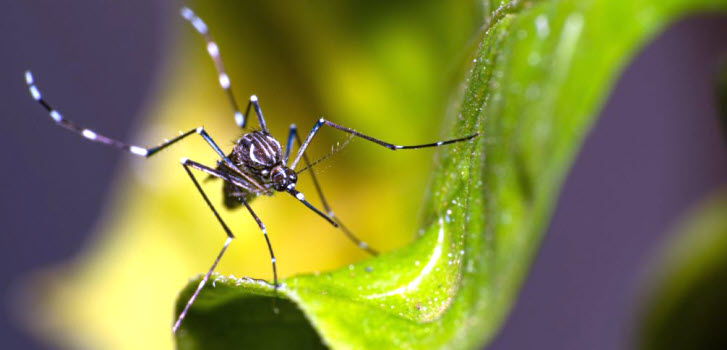A recent study by South American scientists from the National Scientific and Technical Research Council (CONICET) has shown that the mosquitoes that transmit dengue fever have developed a significant resistance to the sprays used to combat it. This resistance is due to a genetic mutation that experts have identified in the genes of the Aedes aegypti mosquito. The discovery of this mutation comes at a critical time, as Argentina has concluded the 2023-2024 dengue fever season with alarming figures: 583,297 confirmed cases and 419 deaths, the highest numbers ever recorded in the country’s history. This increase can also be observed in other Latin American countries.
Since the first cases of dengue fever appeared in Argentina in 1998, pyrethroid insecticides, especially permethrin, have been the main method of controlling the Aedes aegypti mosquito. However, a genetic mutation discovered by CONICET specialists suggests that these methods may become less effective.
Dengue mosquitoes and a more resistant genetic mutation
A group of researchers from CONICET, the Mundo Sano Foundation and the Oswaldo Cruz Institute in Rio de Janeiro, Brazil, have identified a genetic mutation in Aedes aegypti mosquitoes that gives them high resistance to pyrethroid insecticides commonly used in northern Argentina to control the spread of dengue fever. The finding, published in the journal Parasites & Vectors, highlights the growing challenge of combating dengue fever in the region, as insecticide resistance can reduce the effectiveness of vector control campaigns.
“We have conducted the first study that has not only discovered a previously unknown genetic mutation in Aedes aegypti mosquitoes in Argentina, but has also demonstrated through toxicity tests that it is associated with resistance to the effects of pyrethroid insecticides,” said Laura Harburger, who led the study. This finding was obtained in collaboration with the Oswaldo Cruz Institute, where the V410L mutation was identified in addition to the already known F1534C and V1016I mutations. All three mutations are associated with high levels of resistance to the chemical treatments used to control these mosquitoes.
“Under strict biosecurity measures, we grew these eggs to adults in our laboratory and found that all populations tested showed very high levels of resistance to pyrethroids when exposed to a dose that would normally be lethal. We tested up to ten times the doses used and the mosquitoes were still resistant.
Insecticide to combat the new mutation
To address the growing resistance to pyrethroids, the research team tested an alternative insecticide, pyrimifosmethyl, which showed 100% efficacy in tests. Although the insecticide has not yet been approved in Argentina, the World Health Organization recommends its use for Aedes aegypti control in other countries. Harburger, a biologist and member of CIPEIN, the WHO Collaborating Centre for Insecticide Resistance, Chagas Disease and Dengue Research, stresses that the use of pyrimifosmethyl should be part of a comprehensive approach. That approach should include additional measures to prevent mosquitoes from developing resistance to the new insecticide.
© 2009 – 2024 Agência latinapress News and Media. All rights reserved. All contents of this site are protected by copyright. Reproduction and distribution are permitted only with the prior written permission of IAP. Articles and readers' reports marked by name do not necessarily reflect the opinion of the editorial team. To submit requests and comments, please use the contact form.

“Total coffee aficionado. Travel buff. Music ninja. Bacon nerd. Beeraholic.”








More Stories
Coral Seeding: Artificial Insemination Makes Coral More Heat Tolerant
Fear, Anger, and Denial: How People Respond to Climate Change – Research
LKH Graz: Using radiation to combat heart arrhythmias